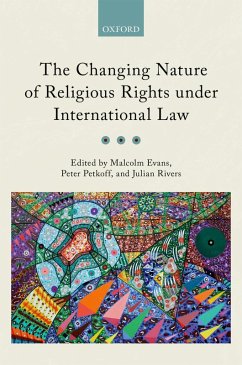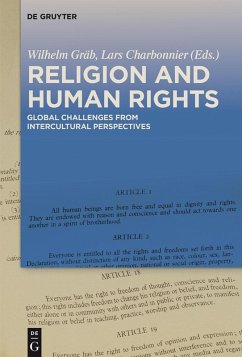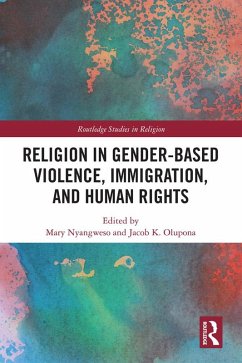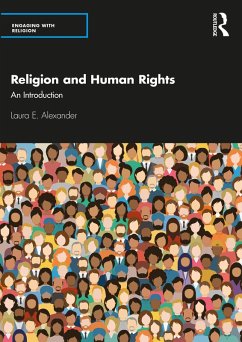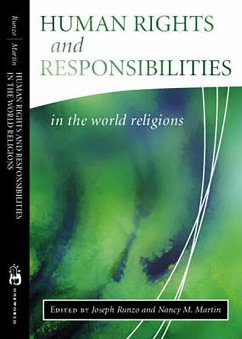
Keeping Faith with Human Rights (eBook, ePUB)

PAYBACK Punkte
22 °P sammeln!
The human rights regime is one of modernity's great civilizing triumphs. From the formal promulgation of the Universal Declaration of Human Rights in 1948 to the subsequent embrace of this declaration by the newly independent states of Africa, human rights have emerged as the primary discourse of global politics and as an increasingly prominent category in the international and domestic legal system. But throughout their history, human rights have endured sustained attempts at disenfranchisement.In this provocative study, Linda Hogan defends human rights language while simultaneously reenvisio...
The human rights regime is one of modernity's great civilizing triumphs. From the formal promulgation of the Universal Declaration of Human Rights in 1948 to the subsequent embrace of this declaration by the newly independent states of Africa, human rights have emerged as the primary discourse of global politics and as an increasingly prominent category in the international and domestic legal system. But throughout their history, human rights have endured sustained attempts at disenfranchisement.
In this provocative study, Linda Hogan defends human rights language while simultaneously reenvisioning its future. Avoiding problematic claims about shared universal values, Hogan draws on the constructivist strand of political philosophy to argue for a three-pronged conception of human rights: as requirements for human flourishing, as necessary standards of human community, and as the basis for emancipatory politics. In the process, she shows that it is theoretically possible and politically necessary for theologians to keep faith with human rights. Indeed, the Christian traditionthe wellspring of many of the ethical commitments considered central to human rightsmust embrace its vital role in the project.
In this provocative study, Linda Hogan defends human rights language while simultaneously reenvisioning its future. Avoiding problematic claims about shared universal values, Hogan draws on the constructivist strand of political philosophy to argue for a three-pronged conception of human rights: as requirements for human flourishing, as necessary standards of human community, and as the basis for emancipatory politics. In the process, she shows that it is theoretically possible and politically necessary for theologians to keep faith with human rights. Indeed, the Christian traditionthe wellspring of many of the ethical commitments considered central to human rightsmust embrace its vital role in the project.
Dieser Download kann aus rechtlichen Gründen nur mit Rechnungsadresse in A, D ausgeliefert werden.




